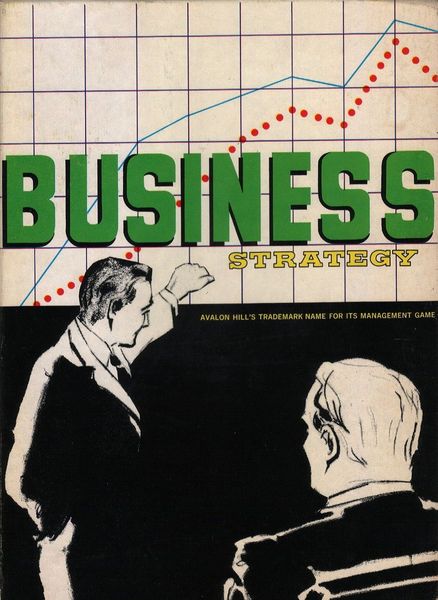Business Strategy (1973) Board Game
Business Strategy is a classic board game released in 1973 by The Avalon Hill Game Co. It is designed for 2-4 players, with a suggested age of 10 and up. The game falls under the categories of Economic, Industry/Manufacturing, and Math, and includes mechanisms such as Auction/Bidding, Commodity Speculation, Loans, Paper-and-Pencil, and Simulation.
Game Components of Business Strategy
How To Setup Business Strategy
To set up **Business Strategy**, each player selects a company to manage. The gameboard is laid out, and each player receives initial capital and resources. Players then prepare their Running Record sheets to track their company’s performance. The situation cards, which introduce various economic and market challenges, are shuffled and placed within reach. The counters and play money are distributed as needed.
Gameplay Mechanics and Game Objective
Player Experience
Playing **Business Strategy** involves a deep dive into business management, making it both educational and engaging. Players must balance various aspects of running a company, from production and pricing to financial management and responding to market challenges. The game requires strategic thinking and planning, making it a great tool for teaching business principles.
Pros
We are supported by our audience. When you purchase through links on our site, we may earn an affiliate commission, at no extra cost for you. Learn more.

